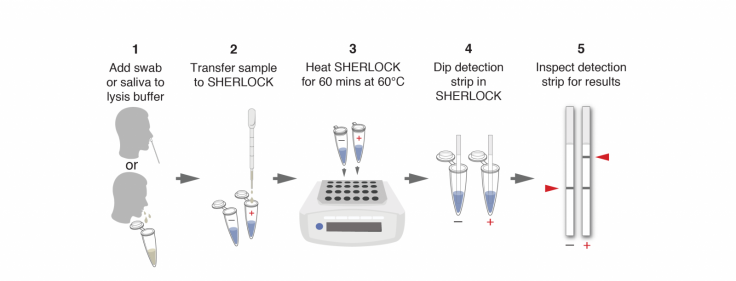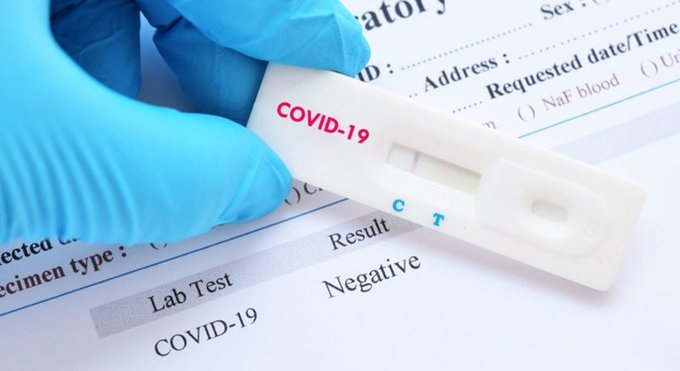Gene-editing tool CRISPR has been put to use in fighting the novel coronavirus and a test has been developed by repurposing the tool by scientists that is cheap and can be used at home or office that is based on a previously developed Sherlock nucleic acid technology.
On Tuesday, a team of scientists from McGovern Institute at MIT and the Broad Institute led by biologist Feng Zhang announced the test that quickly detects the virus causing COVID-19 even if there are as few as hundred virus particles in a sample/swab, reported STAT News.
The test is said to be a "one-pot" protocol, which comes from what Zhang developed –called Sherlock Testing in One Pot (STOP) – back in 2017. The new coronavirus test called STOPCovid can be made using a single test tube while not requiring any special chemical reagents that are already in shortage like in the US. Test results take only an hour, according to Zhang. The test protocol is released on their website, STOPCovid.science.
Not yet FDA approved

However, this test is yet to be approved by the Food and Drug Administration (FDA), researchers are in talks with the FDA officials for receiving an emergency use authorization (EUA) allowing them for clinical use, while Sherlock expands to "Specific High-Sensitivity Enzymatic Reporter UnLOCKing."
At the same time, the researchers are in talks with commercial partners for a cartridge sort of a device, similar to the pregnancy test that enables doctors to test for coronavirus in offices and other health care sites. "It could potentially even be used at home or at workplaces," Zhang said adding that it would be inexpensive not requiring a lab giving results within an hour that uses a paper strip.
High sensitivity and 100% specificity

Testing STOP on swabs from coronavirus patients and also the healthy saliva samples to which SARS-CoV-2 was added, MIT scientists found that this 'Sherlock's test' had cent percent specificity, which means the test never gives a positive if there is no coronavirus present in the sample. It also has 97 percent sensitivity, which means that the test missed reporting positive for about 3 tests among hundred, while the currently used PCR test missed up to almost 30 percent cases, said the scientists.
Right now there is enough material for 10,000 tests and are free for researchers to evaluate its potential diagnostic use, says the report. Scientists are discussing with the Gates Foundation for the distribution of these kits.
The key upgrade for the STOP Zhang created is in its simplification to a single-step reaction, preventing cross-contamination in many step chemical transfers, Zhang said. Sherlock test targets a 'guide molecule' at the novel coronavirus's 'N' gene or the nucleocapsid, the shell enclosing its genome. CDC's PCR test also targets the same N gene. There are also other tests that use CRISPR developed by others as reported.









